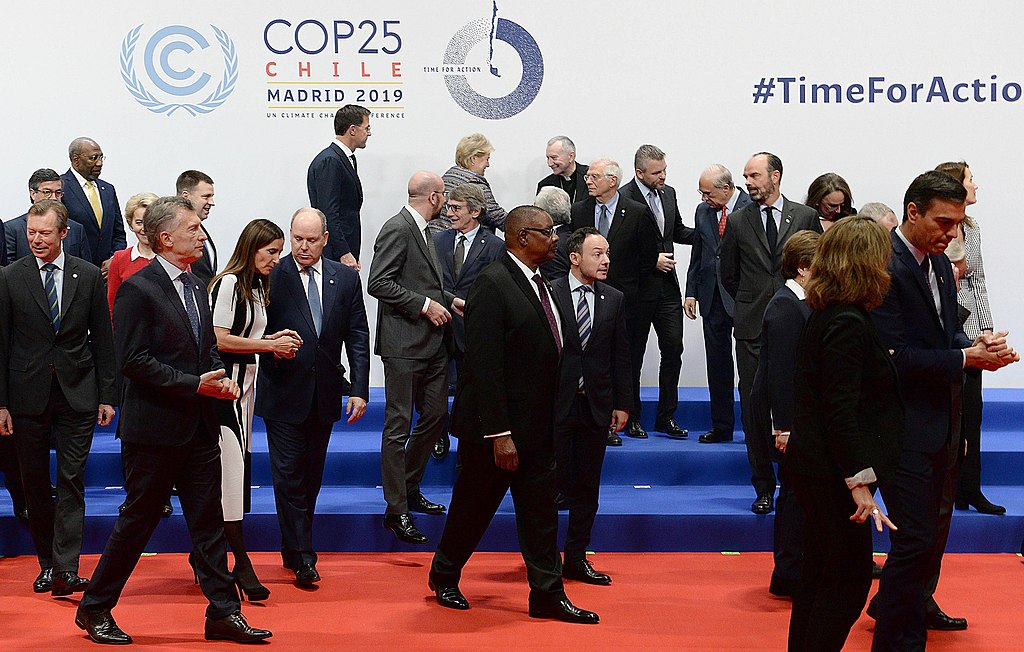At the 2015 Paris Agreements, it was decided that the planet could only survive a 1.5 degree rise in global temperature. Any higher and experts warned of the catastrophic impacts. Five years later, as world leaders once again convene to discuss the climate emergency, it appears nothing has changed.
Recent figures have shown that in order to keep to the 1.5 degree target, greenhouse gas emissions need to fall by 7.6% each year from now until 2030. It is unlikely that this will happen; the current trajectory suggests that the global temperature is forecast to double by the end of the century. While scientists and climate change activists plead countries to abide by targets set in 2015, the carbon emissions globally have steadily increased in the past years, reaching a new record in 2019. The words and pledges to do better that are repeated continuously at climate conventions are simply not reflected in real data. Far from improving, the climate emergency is nearing the point of no return.
The COP25, the annual climate change discussions bringing together world leaders, experts and activists to discuss the international response to the climate emergency, took place in December. In Madrid, close attention was paid to the G20 countries who are responsible for around 78% of global emissions. In particular, the stance of emissions giant China were of interest. Previously, China has only pledged to peak carbon emissions by 2030, rather than making any promises to actively decrease their emissions. Other major emitters, such as Australia, Canada, South Africa and the US, are not on track to meet their current Paris commitments. 2020 is a pivotal year for climate action, as new targets are due to be set in line with more recent predictions. However, with failures to meet previous goals, and scientists agreeing that much more needs to be done, it is becoming increasingly urgent.
In 2019, the COP25 put emphasis on the importance of net zero emissions to combat the climate emergency. Climate neutrality, as it has been described in recent reports, is now at the top of the agenda. The UN climate science report, published in 2018, caused international shock, describing the ‘dire consequences of even 1.5 degree of warming.’ The report highlighted the devastating impact of even a slight increase in global temperatures.
Another critical issue has been trying to forge an international agreement on Article 6 of the Paris Agreement. This controversial article reviews the formation of a global carbon market, enabling countries to cut emissions and fund measures to reduce carbon emissions globally. Although the scheme helps finance climate positive initiatives, sharing technologies and methods to cut emissions, many argue that it is simply a way for richer countries to buy more time, allowing them to continue burning fossil fuels while poorer countries are paid to clear up.
It is undoubtedly concerning that Donald Trump chose not to attend the largest international climate convention of 2019. While the most powerful man in the world is a staunch climate change denier, the potential for change seems limited. However, Donald Trump’s absence does not mean that the US has not been represented. Unofficial representation in the form of members of congress, mayors and businesses were included in discussions. Their presence proved the nation’s commitment to its carbon reduction pledges despite the presidents’ personal stance.
Contrastingly, Greta Thunberg took a leading role during the COP25 discussions. Whilst she expressed her desire for real change following the talks, there has been a pronounced sense of disappointment and anger as she highlighted the lack of action so far. Despite the huge strikes that have taken place in the past year, not much has materialised. Calls for ‘concrete’ change, as Greta Thunberg put it, are mirrored by activists and scientists globally. The frequent international conferences are becoming increasingly redundant without real systemic change. This frustration has been made clear, as over 50,000 protestors gathered in Madrid for the conference to call for dramatic action to tackle the climate emergency.
As the climate change reaches a point of no return, it is the implementation, rather than the ambitious pledges, that will determine the future of our planet.
Laura Kerr
Image: Wikimedia Commons.

